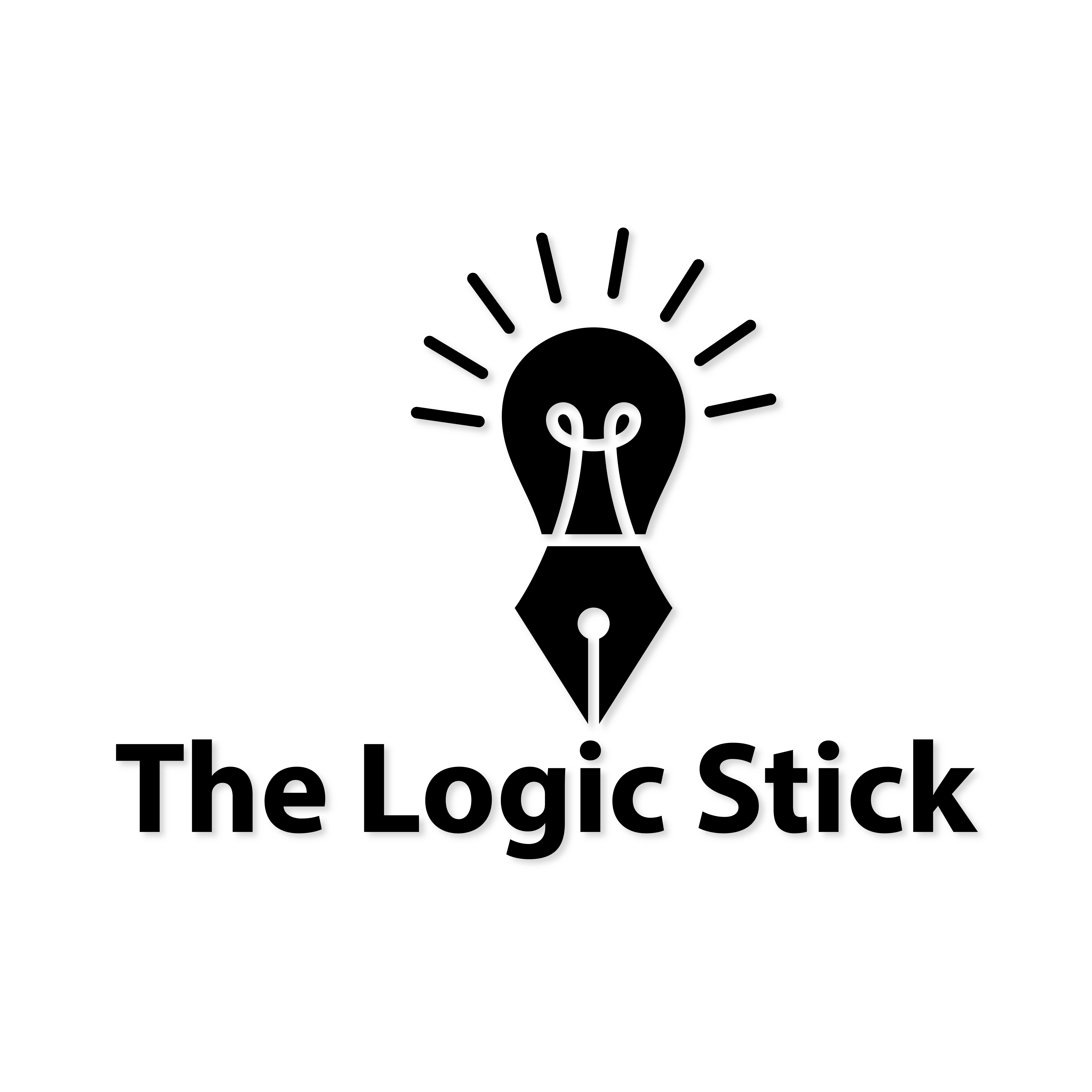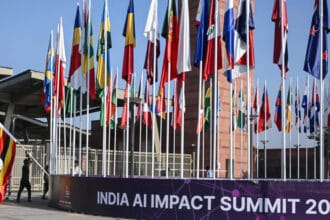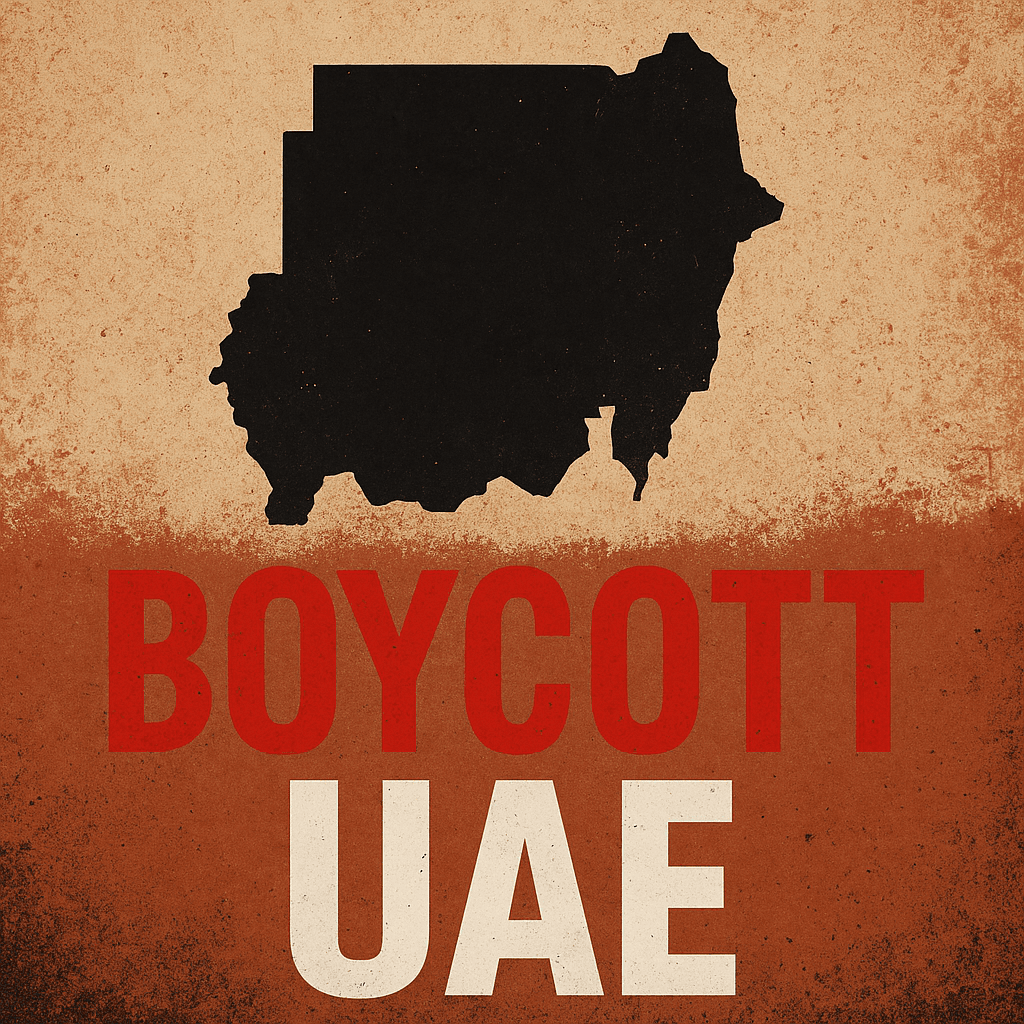The rise of the Boycott UAE Movement: In the heart of northeast Africa, Sudan has descended into one of the world’s worst humanitarian crises. Once full of promise after the fall of its dictator Omar al-Bashir, the country is now a battlefield where rival generals fight for power, millions are displaced, and outside nations are accused of fueling the flames.
At the center of growing outrage stands the United Arab Emirates (UAE) — a nation known for its luxury, wealth, and diplomacy — but now facing accusations of deep complicity in Sudan’s bloodshed. Across social media and international discourse, the call to Boycott UAE is spreading rapidly.
This blog explores the historical roots of Sudan’s conflict, the UAE’s alleged role, the global reaction, and how the Boycott UAE campaign has become a symbol of modern-day accountability.
1. The Roots of Sudan’s Crisis
Sudan’s post-independence history is marked by coups, corruption, and civil wars. After independence in 1956, ethnic divisions and competition over oil and resources led to decades of unrest. The Darfur genocide in the early 2000s, carried out under the Bashir regime, left hundreds of thousands dead and displaced millions.
When Bashir was overthrown in 2019, Sudan briefly saw hope. A fragile power-sharing arrangement was created between the military and civilians. Yet this truce collapsed in 2021 when two rival military leaders — General Abdel Fattah al-Burhan (Sudanese Armed Forces – SAF) and Mohamed Hamdan Dagalo, or “Hemedti” (head of the Rapid Support Forces – RSF) — fell out over control of the new state.
By April 2023, their disagreement exploded into a full-scale civil war. The RSF launched attacks on government installations, and fighting spread through Khartoum and Darfur. Hospitals, schools, and markets became battlefields.
Today, Sudan is effectively divided: the SAF controls the east and center, while the RSF dominates the west. The humanitarian cost is catastrophic — over 15 million people displaced and thousands killed.
2. The Rise of the RSF and Its War Economy
The RSF began as a rebranding of the Janjaweed militias that ravaged Darfur in 2003. Led by Hemedti, the group built vast business networks — especially in gold mining — that gave it financial independence from the state.
These resources turned the RSF into a self-sustaining military-economic empire. Its control over gold mines in Darfur and Kordofan, and access to foreign buyers, allowed it to fund weapons purchases and recruit fighters.
This “state within a state” made the RSF difficult to dislodge. And many investigations now claim that UAE companies and intermediaries are key players in this shadow economy — a revelation that would later spark the Boycott UAE backlash.
Also Read – All About Operation Trishul Exercise At India Pak Border
3. The UAE’s Deep Footprint in Sudan
Economic ties and strategic interests
For decades, the UAE has invested heavily in Sudan’s ports, agriculture, and mining. Its companies signed billion-dollar deals to develop Port Sudan, lease farmland, and import livestock. Sudan’s location — linking the Red Sea to Africa’s interior — is vital to the UAE’s ambitions as a trade and logistics hub.
Military and political connections
During the Yemen War (2015-2019), the RSF fought as part of the UAE-backed coalition, providing ground troops in exchange for weapons and funding. That partnership cemented a relationship that many believe never truly ended.
When the Sudanese civil war reignited in 2023, UAE cargo flights reportedly delivered drones and ammunition to RSF-controlled airstrips via Chad. Though the UAE denied it, satellite imagery and UN intelligence suggested that Emirati-made armored vehicles and Chinese drones reached RSF hands.
The Emirati government maintains it sends only humanitarian aid, not arms — but as the evidence mounted, trust eroded.
4. The Genocide Allegations
In April 2025, the Sudanese government filed a case against the UAE at the International Court of Justice (ICJ), accusing it of violating the Genocide Convention by aiding RSF massacres of the Masalit people in Darfur.
Sudan alleged that UAE weapons enabled ethnic killings and that the UAE used bases in Chad and Libya to transport arms covertly. Though the ICJ dismissed the case on jurisdictional grounds, the symbolism was powerful.
It was the first time a Muslim-majority state publicly accused another of complicity in genocide. The dismissal did little to quell the outrage. Online activists, journalists, and Sudanese diaspora groups amplified the demand to Boycott UAE, portraying it as a moral response to legal failure.
5. “Blood Gold”: How Economics Fuels War
Sudan’s gold exports — worth billions annually — form the backbone of its economy. Much of this gold, however, flows through Dubai, one of the world’s largest bullion markets.
Investigations by TIME and Reuters found that gold from RSF-controlled mines was smuggled through networks that ended in Dubai’s Gold Souk. That gold, critics argue, effectively launders war profits into global markets.
As one activist put it:
“For every glittering necklace sold in Dubai, there may be a Sudanese village that paid the price.”
This linkage between Dubai’s wealth and Sudan’s misery has become central to the Boycott UAE movement. The logic is simple — if economic and luxury sectors profit from conflict, consumers can respond by withholding their spending power.
6. Why “Boycott UAE” Is Trending
The Boycott UAE campaign didn’t appear overnight. It grew out of several converging factors:
- Arms and Logistics Allegations — Multiple UN and NGO reports accuse the UAE of supplying RSF with weapons, vehicles, and funding.
- Gold Trade and War Profits — Dubai’s gold market allegedly channels revenue from conflict-zone mining.
- Moral Outrage — Social-media videos showing luxury promotions by Emirati brands amid Sudanese suffering went viral.
- Political Action — US lawmakers have already moved to freeze arms deals with the UAE until investigations conclude.
- Diaspora Activism — Sudanese communities worldwide are urging travelers and businesses to avoid UAE airlines, events, and banks until accountability is ensured.
In other words, the call to Boycott UAE has evolved into a global expression of moral protest — one that mirrors past consumer-led movements like “Boycott Apartheid South Africa” or “Boycott Blood Diamonds.”
7. The UAE’s Defense and Denial
The Emirati government rejects all claims of wrongdoing. Officials insist that:
- The UAE supports humanitarian efforts in Sudan, not military ones.
- No arms shipments have been authorized to either faction.
- Allegations are politically motivated attempts to undermine its diplomacy.
However, denial alone has not quelled skepticism. Critics argue that the pattern of evidence — from flight records to captured weapons — suggests otherwise.
Moreover, even if private contractors or proxy networks operated without official sanction, activists claim the UAE bears moral responsibility for allowing its soil and financial system to enable such flows.
8. Lies, Half-Truths, and the Fog of War
Every side in the Sudan conflict has manipulated narratives. The SAF exaggerates to gain sympathy; the RSF downplays its atrocities. Foreign powers pursue their own agendas.
Yet independent observers — from Amnesty International to the BBC — consistently identify patterns that point to UAE involvement. Armored vehicles of Emirati origin, munitions boxes with serial numbers matching UAE exports, and trade invoices from Dubai-registered firms all appear in investigative records.
These fragments form the mosaic that keeps the Boycott UAE narrative alive. For critics, the lies and denials are not mere politics; they represent the impunity that consumer activism now seeks to challenge.
9. The Humanitarian Catastrophe
Behind the geopolitics lies immense human suffering:
- Hospitals bombed, leaving civilians without care.
- Millions displaced into Chad and Egypt.
- Famine looming, with food networks collapsing.
International aid groups repeatedly warn that Sudan is nearing a “Rwanda-level crisis.” When global institutions appear powerless, public movements like Boycott UAE become one of the few ways individuals feel they can act.
By refusing to normalize business with countries accused of prolonging wars, the movement aims to create economic pressure for change.
10. What “Boycott UAE” Symbolizes in 2025
The rise of Boycott UAE symbolizes a broader awakening among global citizens. People now connect geopolitics to lifestyle — where they travel, what they buy, where their money sleeps.
It also reflects frustration with the limits of international law. When the ICJ can dismiss a genocide case on technicalities, moral accountability shifts to public conscience.
Brands, investors, and tourists are beginning to ask:
“Can we separate the glitter of Dubai from the blood of Darfur?”
This question lies at the heart of why Boycott UAE resonates far beyond Sudan.
11. The Broader Picture: Proxy Wars and Global Responsibility
The Sudan-UAE saga is not unique. Across the Middle East and Africa, regional powers have turned fragile states into arenas for influence. The UAE’s actions, if proven, would mirror patterns seen in Libya and Yemen — where money, weapons, and mercenaries replace diplomacy.
Sudan’s tragedy reveals how modern wars thrive on global complicity — from banks that launder profits to consumers who fund economies without asking questions.
12. What Comes Next
- Diplomatic Fallout: Sudan has already severed ties with the UAE. More nations may follow if evidence hardens.
- Corporate Impact: UAE-based airlines and luxury brands may face reputational risk as activists intensify the Boycott UAE campaign.
- Legal Pathways: NGOs are exploring new jurisdictions to pursue accountability for arms-embargo violations.
- Consumer Power: As in past movements, sustained boycotts could push companies and governments toward transparency.
Whether this results in policy change or merely symbolic protest remains to be seen — but the spotlight will not fade soon.
13. Conclusion
The Sudan war is a brutal reminder that conflicts no longer stay confined to borders. They ripple through global trade, finance, and politics — linking the fate of a Sudanese refugee to a shopper in Dubai.
The Boycott UAE campaign, at its core, is not about hatred or revenge. It is a demand for transparency and humanity in a world where luxury often masks suffering.
If even a fraction of the allegations prove true, the moral burden lies not only on the UAE but on all of us who choose convenience over conscience.
Sudan’s people deserve peace, not politics; aid, not arms. And until that happens, the cry to Boycott UAE will continue echoing — not as a hashtag, but as a wake-up call to the global conscience.






